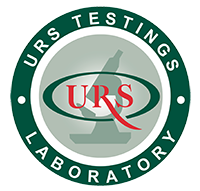Whether you’re a food manufacturer, a regulatory professional, or simply a health-conscious consumer, understanding the nuances of microbiology testing is crucial for anyone involved in the food industry. Located at the crossroads of commerce, Dubai has become a hub for Food Testing Labs, ensuring that both local and international food standards are not only met but exceeded. This comprehensive guide will explore the pivotal role that Microbiology Testing in Dubai plays in keeping our food safe.
The Importance of Food Microbiology Testing in Dubai
In the bustling city of Dubai, where the culinary landscape is as diverse as its populace, ensuring food safety is not just a regulatory requirement but a critical necessity. Microbiology Testing in Dubai is paramount in detecting potentially harmful microorganisms in food products, thus preventing foodborne illnesses and ensuring public health. Microbiology testing helps identify pathogens like Salmonella, Listeria, and E. coli, which are responsible for most foodborne illnesses.
Methods and Technologies Used in Food Microbiology Testing
Advanced technologies and methodologies are at the forefront of microbiological analysis in food testing. Some of the most common techniques include:
● Culture-Based Methods: Although considered traditional, these methods remain the gold standard for detecting viable bacteria and fungi. They involve isolating organisms on nutrient-specific media, which helps in identifying specific pathogens responsible for food spoilage or diseases.
● Molecular Diagnostics: Techniques like PCR (Polymerase Chain Reaction) have revolutionized pathogen detection by allowing for the rapid, sensitive, and specific identification of microbial DNA. This method is particularly valuable in confirming the presence of pathogens that are difficult to culture.
● Rapid Microbiological Methods (RMMs): These include immunoassays and biosensor technologies. RMMs reduce the time from sampling to results, improving the responsiveness of food safety protocols. They are crucial in environments where time is of the essence, such as in processing and distribution centers.
Regulations and Standards in Dubai
Dubai’s regulatory framework for food safety is robust, integrating both local and international standards to create a comprehensive oversight system. Food Testing Labs must navigate these regulations, which are designed to align with global best practices:
● Local Regulations: Governed by the Dubai Municipality, these regulations ensure that all food items sold within the city meet strict safety standards. Regular inspections and mandatory microbiology testing are part of the compliance requirements.
● International Standards: Many laboratories in Dubai, including ISO Accredited Laboratory in Dubai, adhere to ISO 17025 standards. This international standard helps laboratories develop a quality management system and assess their ability to produce precise and accurate test and calibration data.
The Role of ISO-Accredited Laboratories in Dubai
An ISO-accredited laboratory in Dubai like URS Labs plays a crucial role in the food safety ecosystem. These labs are not only equipped with state-of-the-art facilities and technologies but also staffed by experts trained in the latest microbiological testing procedures. Their accreditation signifies adherence to international standards, and building trust with consumers and regulatory bodies.
● Research and Development: To innovate new testing methodologies that are quicker and more cost-effective.
● Public Health Campaigns: Educating the public and food businesses about the importance of food safety and the role of microbiology testing in preventing disease.
Microbiology Testing in Action: Case Studies
To illustrate the impact of effective microbiology testing, consider the case of a local Dubai restaurant chain that experienced an outbreak of foodborne illness. Through prompt testing by a local Food Testing Lab in UAE, the source was quickly identified as a contaminated batch of produce. The rapid response and subsequent adjustments in the supply chain prevented further illness.
Another case involves a Dubai-based food manufacturer that regularly conducts microbiology testing to ensure the longevity and safety of its products. Shelf-life testing in UAE is crucial for products destined for both local and international markets, ensuring they remain safe and of high quality throughout their intended shelf life.
Challenges and Future Trends in Food Microbiology Testing
Despite advancements, food microbiology testing faces challenges such as the need for faster, more cost-effective testing methods and the adaptation to new pathogens. Future trends likely include the integration of AI and machine learning to predict and manage food safety risks more effectively.
The Importance of Continuous Learning and Training
As the field of food microbiology evolves, continuous professional development becomes essential. Courses like Microbiology Hands-on Training Course UAE provide technicians and scientists in Dubai with the latest skills and knowledge, ensuring they stay at the forefront of microbiology testing techniques.
Food microbiology testing is a cornerstone of food safety in Dubai. As the city continues to grow as a global food hub, the importance of maintaining rigorous testing standards cannot be overstated. By supporting and utilizing the services of ISO Accredited Laboratory in Dubai like URS Labs, food businesses and consumers can ensure that the food on their plates is not only delicious but safe.

